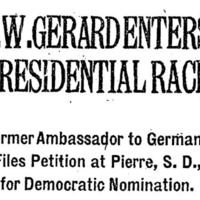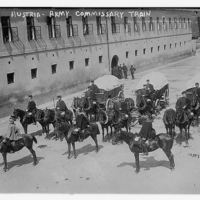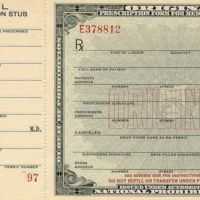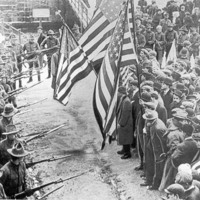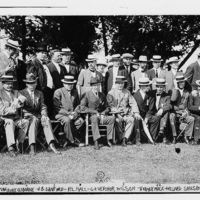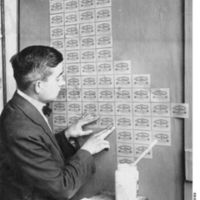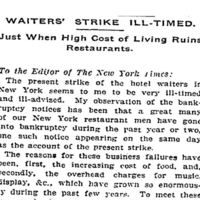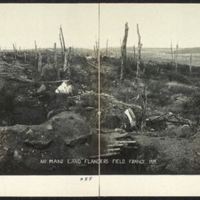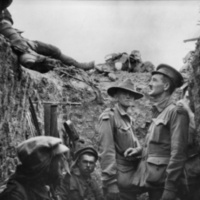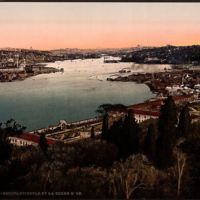Search Disabled on Archive Site
Browse Items (24 total)
Gerard Throws His Hat into the Ring
J.W. Gerard, a former U.S. ambassador to Germany, entered his name for consideration for the Democratic presidential nomination in 1919.
Trains in France May Soon Stop
An army "train" can also refer to a convey of trucks, cars, or wagons (as in this ca. 1910-1915 photograph of an Austrian army commissary train), as well as a steam-engine train. I was not able to find a specific reference to trains being halted in…
34 Die After Drinking Wood Alcohol
Although I could not find a reference to a similar story, this sounds like a reference to individuals drinking unusual substances for their alcohol content during the U.S. Prohibition Era. See another newsreel item for more on Prohibition.Related…
the placards borne by the radicals were taken away from them,
Refers to the dangers of perceived "radical" political or labor activity in this era, especially during the First Red Scare of 1919-1920 (see a related newsreel item). The media here is from the 1912 Lawrence, MA Textile Strike, which was led by the…
When I think of the flag which our ships carry, the only touch of
This fragment is from an actual speech given by Woodrow Wilson at the State Democratic Convention in Trenton, New Jersey in September 1910 on receiving notice of his nomination for the governorship. The version recorded by his biographer and private…
coincident with a position of that kind will be a bringing from
It is unclear to me the exact reference of this item. The reference to war-driven international financial transactions brings to mind the economic upheaval of the war; for example, GDP increased for the three major Allied countries (Britain, Italy,…
STRIKING WAITERS ASK AID OF WOMEN
This headline might refer to the 1912-1913 New York City strike of waiters at high-profile restaurants; the strike was organized by the Wobblies (Industrial Workers of the World). Presented here is one of many New York Times articles on the strike:…
when they return home what will out war veterans think of the
A fragment comparing the WWI soldiers' terrifying experience of trench warfare with the idealism of those who stayed at home (e.g. Wilson's utopian ideal of a League of Nations and the various labor and socialist movements following WWI).Image:A view…
TURKS FLEE BEFORE TOMMIES
An ironic newspaper headline, as its describes the opposite of what happened: The Turkish peninsula of Gallipoli was attacked by British forces ("Tommies") in 1915 with the hope of opening a route to their Russian allies; the Ottomans, with German…
BRITISH FLEET SENT TO SEIZE
Allied fleets could not pass through the Dardanelles Strait during the Battle of Gallipoli in 1915. After the end of WWI, the Ottoman fleet was dissolved, with some of the ships locked inside the "Golden Horn", an inlet of the Bosphorus providing a…
